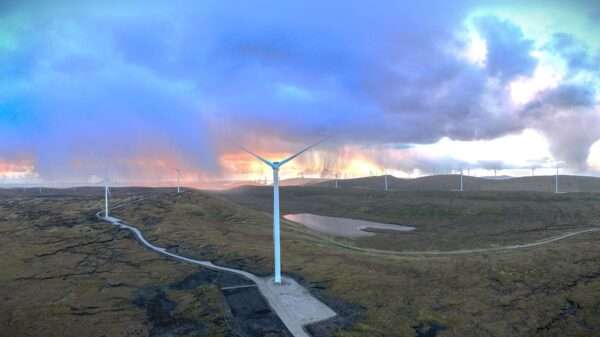The government’s plan to meet climate targets and green the economy has been ruled unlawful by the High Court.
The campaigning groups that brought the case had argued it relied too much on risky technologies and glossed over the risk of missing targets.
Judge Clive Sheldon upheld four out of the five grounds in the legal challenge.
Today ministers agreed to publish a new report within 12 months to comply with the ruling, but said the overarching plan had not been criticised and will remain government policy.
Katie de Kauwe, lawyer for one of the groups Friends of the Earth, called it an “embarrassing defeat for the government and its reckless and inadequate climate plans”.
She added: “Cutting emissions isn’t only essential to avert the worst of climate breakdown, it will create long-term jobs in green industries of the future, boost energy security, bring down our bills and end our reliance on costly fossil fuels.”
Labour’s shadow climate change secretary Ed Miliband called it a “new low”.
Plans branded a ‘pipe dream’
This is the second time the three groups – Friends of the Earth, ClientEarth and the Good Law Project – have taken the government to court over its climate plans.
In July 2022 the High Court ruled in their favour that the government’s last climate plan – the Net Zero Strategy – was unlawful because it didn’t explain how targets would be met.
That case forced officials to draw up a second version – the Carbon Budget Delivery Plan (CBDP) – which campaigners argued was still “a complete pipe dream”, and so launched a second legal challenge.
It concerns carbon budgets set by the government last year in order to meet Britain’s target of net zero by 2050.
It was published in March 2023, before Prime Minister Rishi Sunak went on to tinker with some climate targets under a new “pragmatic” approach.
The campaigners said the second plan relied too much on “unproven” technologies like those that capture carbon dioxide from factories or power plants and store them underground, known as CCS.
While some CCS projects exist, and scientists believe they are crucial in combatting climate change, they have proven hard to scale up and remain very expensive.
The three groups also argued it was unlawful because then energy minister Grant Shapps was not told of the risk that policies to reduce emissions could not be delivered.
A spokesperson for the government’s energy security and net zero department said: “The UK can be hugely proud of its record on climate change.
“Not only are we the first major economy to reach halfway to net zero, we have also set out more detail than any other G20 country on how we will reach our ambitious carbon budgets.
“The claims in this case were largely about process and the judgment contains no criticism of the detailed plans we have in place.
“We do not believe a court case about process represents the best way of driving progress towards our shared goal of reaching net zero.”







































